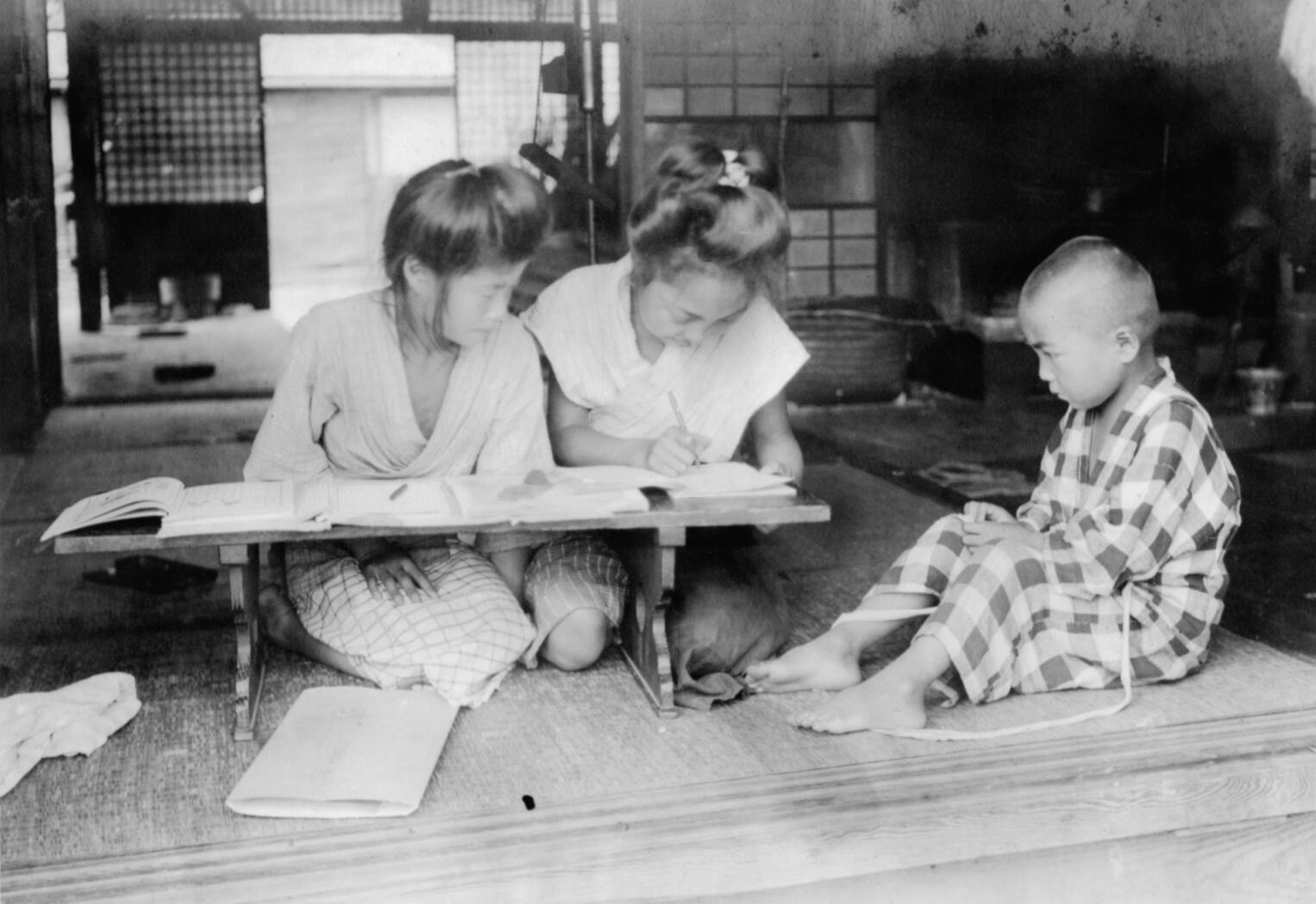For students, parents, and teachers across the globe, homework has long been a source of struggle and debate. It’s traditionally seen as a foundational part of the schooling experience to reinforce classroom learning, but modern research suggests it could be more harmful than helpful, especially in certain circumstances. Learn about the historical contexts of homework, its place in the modern school system, how it affects students, and how we can change homework for the better.

The Historical Contexts of Homework
The practice of assigning work outside of the formal learning environment is far from a modern invention, tracing its roots back to ancient civilisations. While it’s impossible to know everything about the history of homework, researchers have gathered some evidence from ancient records and archaeological studies. Students have been tasked with take-home work for thousands of years.
Ancient Beginnings
In ancient Mesopotamia, students would repeatedly copy cuneiform texts onto clay tablets as practice, forming an early version of drill-based homework. Similarly, in Ancient Rome, figures like Pliny the Younger encouraged his students to practice their oratory skills at home to improve public speaking.
In these early eras, education was a lot more straightforward. Students were being trained to function as critical members in a close-knit society; many were being prepared for roles like scribes or priests. As time went on, schooling and homework expanded to include religious and military training.

The Modern Homework Model
The modern model of mandatory homework took shape in 19th-century Prussia (Germany). Philosopher Johann Gottlieb Fichte promoted a uniform public education system, the Volksschulen, where compulsory at-home schoolwork helped mould obedient, patriotic citizens.
American reformer Horace Mann later brought this model to the United States after visiting Prussia in the mid-1800s. Impressed by its discipline and standardisation, he supported government-regulated, tax-funded public schools and introduced homework as a way to reinforce lessons, build self-discipline, and promote accountability in the U.S.
As industrialisation spread, homework became a cornerstone of standardised education worldwide. Today, however, many schools question its relevance, moving away from rigid, 19th-century practices, while others continue to cling to tradition. This is where the homework debate hinges today.
The Pros and Cons of Homework
The type of homework under fire these days is the type that fits with the Mann model. Even though attitudes have shifted back and forth between pro- and anti-homework in various countries over the years, the debate is still aimed mostly at homework that is:
- Mainly aimed at rote memorisation
- Superfluous, making students spend hours per day on assignments
- Useless busywork, or too complicated or challenging
Here’s what the data says about the real downsides, as well as the benefits, of homework.
The OECD notes they should have no more than 4 hours per week.
Meta-Analyses Showing the Benefits and Harms
Does homework help students learn?
Research suggests the answer depends on age and quality. For secondary students (Year 7+), moderate, well-designed homework supports achievement through spaced repetition, which strengthens memory and understanding.
However, these benefits quickly diminish, or even reverse, when the coursework becomes excessive or lack quality.
Studies show more than two hours of nightly homework in high school brings little academic gain while heightening stress. For primary school children, traditional homework offers almost no cognitive benefit and instead robs them of time for play, rest, and social growth.
The evidence is clear: thoughtful homework aids older learners, but younger children need developmentally appropriate alternatives.
Here are a few key points brought up in studies about homework statistics:
- Achievement doesn't always correlate with amount of time spent on homework
- Some homework is better than none, as evidenced in a 2014 analysis of PISA scores that showed students who spent 1-2 hours per day on math homework did better than those who did none
- Teachers often vastly over- and underestimate how long assignments take to complete
- In a survey of more than 2,000 students, 90% reported additional stress from homework

The Benefits: Homework as a Tool for Growth
When homework is well-designed and assigned in moderation, it offers several tangible benefits to students, even beyond the classroom.
- Reinforcement of Learning: Homework acts as a critical practice period, utilising spaced repetition to help students retain material learned in class, leading to improved memory and mastery of skills.
- Development of Life Skills: Completing schoolwork independently fosters essential non-academic skills, such as time management, planning, goal setting, self-discipline, and accountability. These skills are vital preparation for tertiary education and the workforce.
- Parental Involvement: Homework can create a bridge between the school and the home, providing parents with a tangible way to understand the curriculum and get involved in their child's education.
- Preparation for University: Older students, especially those in their final years of secondary school, benefit from complex assignments that prepare them for the level of self-directed study and independent research required at the university level.
These are the reasons proponents of homework argue it should not be modified. However, there is a middle ground that seems like a healthier compromise for students.
So, is homework necessary? According to the statistics about homework, it can be helpful, especially for older students.
However, instead of the frustrating work that is often assigned, interesting, useful homework assignments can be used that both stimulate students’ love of learning, while ensuring that they are better understanding the material.
The Harms: When Homework Becomes a Burden
Conversely, when take-home work is excessive, repetitive, or of low quality, the negative effects can profoundly impact a student's mental health and overall well-being, and even their academics. Opponents of homework cite these reasons as evidence that students should not have homework. But most of the people against “traditional” homework are in favour of a reform, rather than eradicating it entirely.
Evidence shows that too much homework, especially imprudent assignments, can contribute to these problems for students:
- Increased Stress and Anxiety: Excessive homework is consistently linked to high levels of stress, anxiety, and even physical health problems like sleep deprivation, weight loss, and headaches among students. The pressure to perform well while balancing a heavy workload can lead to burnout.
- Reduced Family Time and Conflict: Homework often encroaches on family time, turning evenings into stressful battles over math questions. This lack of time dedicated to family, extracurricular activities, or rest compromises a healthy work-life balance for young people.
- Worsening Educational Inequity: Homework can widen the achievement gap between students. Those from low-socioeconomic backgrounds or those who lack essential resources (such as a quiet study space, reliable internet, or parents with time and expertise to help) will inherently struggle more than those with better support systems.
- Ineffectiveness and Teacher Burnout: Poorly constructed assignments, such as simple worksheets or repetitive drills, do not promote critical thinking and can lead to frustration and a negative attitude towards learning. Additionally, the burden of creating and grading contributes to teacher workload and burnout.
Even students themselves often rate homework as an important part of their education, meaning even if they don’t like it and it brings them stress, they still understand the reason for its assignment. However, if given a choice, students would probably choose “alternative” homework over “traditional” homework the majority of the time.
Most people agree that the answer to the question “Should students have homework?” is “Yes, but it needs to be meaningful.”
How Can Homework Be Improved?
It’s unlikely that the education system in any country will reach a Zero Homework Policy in the foreseeable future. Therefore, focus needs to be put on how to make homework better so it doesn’t waste time, and it actually helps students learn more.
This conversation goes hand-in-hand with wider discussions about schooling and education in general.
Lessons From International Examples
Looking at examples from global education systems shows that cultural attitudes are a large part of how homework and education are handled. It influences how educators, parents, and students learn and behave regarding class and homework.
High-performing educational systems around the world offer valuable lessons on how to approach take-home work. For instance, East Asian countries like China are known for their extremely high volume of homework (plus additional schooling like cram and prep schools), reflecting a cultural belief that rigorous practice and long hours are the key to academic success. While this approach does result in high test scores in international rankings, it frequently comes at the cost of high student stress, chronic mental health struggles, and reduced time for leisure.
Countries that assign much more homework than average may see some benefits in their students' scores, but some score worse than countries that assign less homework. There are many more factors than just "number of minutes spent on homework per day" influencing students.
In contrast, Finland (a country consistently ranked among the world’s best in educational outcomes) is famous for its approach of assigning minimal, high-quality, non-traditional homework. The Finnish philosophy is centred on the idea that children need ample time for play, rest, and exploration, viewing these activities as crucial developmental processes. Finnish schools operate on the principle of giving full trust and professional discretion to their teachers.
This attitude of trust is mutual between educators, parents, and students, even young children.
This culture allows organic, class-specific policies to develop, ensuring that any work assigned outside of school is meaningful and tailored to the specific needs of the students.
Research indicates that the benefits of homework, especially the correlation between more work and better grades, vary significantly across nations and student age groups, reinforcing the idea that context and quality are the most important variables.
What can we learn from this?
- Cultural attitudes play a large part in how effective homework is
- Good academic results can be achieved both with too much homework (which has a detrimental effect on students) and with small amounts of homework
- Societies that emphasise student well-being obviously have a happier population, on average

The Future of Assignments: Alternative Homework
One of the most promising ways to tackle the homework crisis is by changing the way homework functions.
In response to the mental health crisis plaguing students, a growing number of schools, including those in Australia, are experimenting with alternative homework models. Alternative homework is a departure from traditional worksheets, packets, and repetitive drills, focusing instead on creative, self-directed, and authentic learning experiences.
These assignments are designed to re-engage students who may have lost their love of learning by nurturing creativity, making knowledge exciting, and building trust in students' ability to handle their own education.
Some types of alternative homework include long-term projects, flipped classroom models (where students watch instructional videos at home and practice during class time), and meaningful community challenges like volunteering or conducting family interviews.
Research supports the shift, showing that these alternative models offer real benefits, especially for younger learners who are not developmentally ready for academically-focused work.
These assignments still give children the tools and opportunity to develop critical skills like time management, planning, critical thinking, research, and organisation, while also fostering passion and confidence rather than a resigned attitude.
Parents Can Help
Depending on where you live in the world and your specific family, homework is likely either a source of bonding or a source of conflict (sometimes a mixture of both).
The key for parents in any era and place is to try to be involved without getting frustrated, and without simply doing the homework for their child.

This is another reason why alternative homework is a good direction for schools to take; alternative assignments are meant to foster parent-child bonding without the stress from overly difficult homework.
For younger students, parental involvement should focus on maintaining a consistent, quiet, and organised environment for study.
Parents can offer support through encouragement and genuine interest.
This involvement and preparation help children develop healthy study habits, and executive functioning and organisational skills, even if the homework itself isn’t very academic.
For secondary school students, parents can take a more hands-off approach (especially if the student has a solid study foundation laid from their younger years). Parents can act more like a guide or a sounding board for students to plan their work. They can help their child break down larger projects into manageable steps with realistic deadlines, and can assist with scheduling and accountability, encouraging them to ask for help from their teacher or classmates if needed.
At all ages, parents can best help their children by being proactive and communicative with teachers regarding things like the “digital divide” and any learning differences that could keep their child from completing schoolwork like their classmates.
Homework has long been used as a supplement to classroom learning. While the old model is highly outdated and appears to be causing more harm than good, there is still room for homework in schools. The key is to focus on quality and a holistic approach to education.
References
- admin. (2025). Does homework work? The science of when and how to approach it. In Centre for Educational Neuroscience. Centre for Educational Neuroscience. https://www.educationalneuroscience.org.uk/2025/02/04/does-homework-work-the-science-of-when-and-how-to-approach-it
- Alternatives to High-Stakes Assignments. (n.d.). In Center for Teaching, Learning, & Outreach (CTLO). https://ctlo.caltech.edu/universityteaching/resources/courses/alternatives-to-high-stakes-assignments
- Benefits of more homework vary across nations, grades. (n.d.). In Penn State University. https://www.psu.edu/news/research/story/benefits-more-homework-vary-across-nations-grades
- Clark, B. (2023). The case for banning homework so kids can have a life. In Crikey. https://www.crikey.com.au/2023/02/01/banning-homework-argument
- Does homework still have value? A Johns Hopkins education expert weighs in. (2024). In The Hub. https://hub.jhu.edu/2024/01/17/are-we-assigning-too-much-homework
- Gershon, L. (2020). The Surprising History of Homework Reform. In JSTOR Daily. https://daily.jstor.org/the-surprising-history-of-homework-reform
- Homework. (n.d.). In Britannica. Retrieved September 29, 2025, from https://www.britannica.com/procon/homework-debate
- This is why we should stop giving homework. (n.d.). In Chris McNutt. https://www.humanrestorationproject.org/writing/this-is-why-we-should-stop-giving-homework
- Youki Terada. (2025). The Pros and Cons of Homework (in 6 Charts). In Edutopia. George Lucas Educational Foundation. https://www.edutopia.org/visual-essay/the-pros-and-cons-of-homework-in-6-charts
Summarise with AI:



















I really enjoyed reading about this. Especially because i am a student and totally agree to this